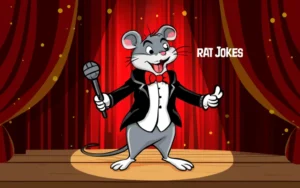Last Updated on May 8, 2025 by Henry James
Poker is a game of strategy, skill, and psychology. Whether you’re a seasoned player or a beginner, mastering certain poker tactics is essential if you want to consistently win and outplay your opponents. Winning in poker is about more than just having the best hand—it’s about understanding the game, reading your opponents, and knowing when to bluff or fold.
If you’re looking to explore more strategies across different casino games, including poker, blackjack, and slots, be sure to click here for additional expert guides and insights.
In this guide, we’ll walk you through some of the most effective poker tactics to help you become a stronger player and increase your odds of winning.
1. Understand the Importance of Position
One of the most crucial aspects of poker is understanding the concept of position. Your position at the table determines the order in which you act during a hand, and it greatly influences your decision-making. The most advantageous positions are those that come later in the betting rounds, such as the “button” or the “cutoff.” These positions allow you to observe how other players act before making your own move, giving you more information about their hands.
Players in early positions have to act first, which can be a disadvantage because they don’t have the luxury of seeing how other players bet. Use this to your advantage by playing stronger hands when you’re in early positions and widening your range when you’re in a later position.
2. Know When to Fold
Many players, especially beginners, have a tendency to stay in a hand too long, hoping for a miracle turn or river card. This is a costly mistake. Knowing when to fold is one of the most important poker tactics to master. If you’ve invested a lot of chips into a hand, it can be tempting to continue, but if the odds aren’t in your favor or the community cards don’t improve your hand, it’s often best to cut your losses and fold.
Don’t be afraid to let go of a hand if the situation suggests it’s not going to improve. A good poker player understands the importance of conserving their chips for more promising situations.
3. Master the Art of Bluffing
Bluffing is one of the most iconic poker strategies, and when done right, it can be a game-changer. Bluffing involves convincing your opponents that you have a better hand than you actually do. However, it’s important to bluff sparingly and at the right time. Bluffing too often can quickly become predictable, and savvy opponents will catch on.
The key to successful bluffing is reading the table and your opponents. If your opponent has been playing passively or showing weakness, this might be the perfect time to make a move. However, bluffing works best when you have a story to tell with your betting pattern. If you’re betting aggressively, make sure the story aligns with your hand.
4. Pay Attention to Your Opponents’ Betting Patterns
Poker is as much about reading your opponents as it is about playing your own hand. By paying close attention to your opponents’ betting patterns, you can gather valuable information about their potential hands. Are they betting aggressively? Are they checking a lot? Do they raise pre-flop with a wide range of hands, or do they play more conservatively?
Look for any “tells” that might indicate the strength of their hand. For example, if a player suddenly starts betting aggressively after a calm, passive period, it could indicate that they’ve hit a strong hand. The more information you gather, the better equipped you are to make informed decisions and outplay them.
5. Control Your Emotions (Avoid Tilt)
One of the most dangerous things a poker player can do is lose control of their emotions. “Tilt” is the term used to describe a state of emotional frustration or anger that leads to poor decision-making. If you’ve just lost a big pot or been on the receiving end of a bad beat, it’s easy to let your emotions take over.
The key to overcoming tilt is maintaining focus and discipline. Take a deep breath, step back, and refocus before making any major decisions. Staying calm and collected will allow you to play better and avoid making impulsive decisions that can cost you big.
6. Know When to Slow Play
Slowing down the pace of the game with a strong hand can sometimes be a smart tactic. Slow-playing involves playing a strong hand passively to encourage your opponents to bet more, giving you more chips in the pot. This can work particularly well if your opponent is aggressive, as it encourages them to keep betting, believing they have the better hand.
However, slow playing isn’t always the best option, especially if your opponents are more cautious. Use slow playing sparingly and only when you believe you can get more value out of your hand by luring your opponents in.
7. Understand Pot Odds and Expected Value
Understanding pot odds and expected value is a key tactical skill for any serious poker player. Pot odds are the ratio of the current size of the pot to the cost of a contemplated call. Essentially, they help you determine whether it’s worth continuing with a hand based on the size of the pot and your chance of winning.
Expected value (EV) is the average amount you can expect to win or lose from a particular decision. By making decisions with positive expected value, you’re making choices that, over time, will increase your winnings.
8. Play Your Opponents, Not Just the Cards
Poker is often described as a game of psychology. Yes, the cards matter, but so does understanding your opponents. You can make much better decisions when you observe your opponents’ tendencies and adjust your play accordingly.
For example, if a player is very aggressive, you might want to play more conservatively and wait for them to make mistakes. Conversely, if a player is overly passive, you can take advantage of their hesitation by being more aggressive and forcing them to act.
Conclusion
Mastering poker tactics is the key to consistently outplaying your opponents and increasing your chances of winning. By understanding position, knowing when to fold, bluffing strategically, reading your opponents’ patterns, and controlling your emotions, you can take your poker game to the next level. Poker is a skill-based game where smart decisions and psychological insight are often the difference between victory and defeat.
Apply these tactics to your gameplay, and you’ll be well on your way to becoming a more successful and profitable poker player.

Henry James is the humorist behind Haha Joks, a website where laughter reigns supreme. With a deep appreciation for wit and clever wordplay, Henry crafts and shares jokes that bring joy to readers of all ages. His mission is simple: to spread happiness, one joke at a time. Whether you’re looking for a quick giggle or a side-splitting laugh, Henry’s collection on Haha Joks is sure to deliver.









